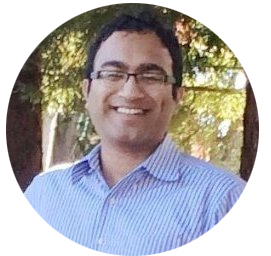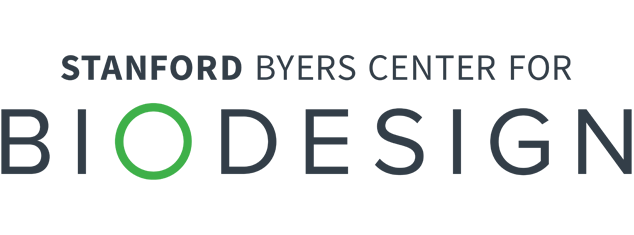Building for Digital Health
Overview
As our world is becoming more and more digitized, patients and their devices are generating streams of valuable data that can provide meaningful clinical insights. This digital health revolution provides great opportunities to design and validate new digital health concepts. Many groups within the Stanford medical school have promising ideas that are ripe for development, however, they lack the software engineering and healthcare compliance know-how to take them forward.
Building for Digital Health is sponsored by the Stanford School of Medicine (SoM) and Stanford’s Computer Science (CS) department. Its goal is to give CS students the opportunity to apply their skills to real-world health technology development projects, while enabling SoM faculty to leverage these talented individuals to help advance their technology concepts toward patients. Both audiences will learn a repeatable approach for developing new digital health technologies and preparing to launch them in the market.
For Faculty
Do you have an idea for how to leverage digital tools to improve patient care or further important clinical research?
With advances in digital technology, there are a multitude of new ways to improve healthcare and expand clinical research beyond the hospital and clinics. However, this requires specialized knowledge at all stages of the pathway for launching a digital health application (see figure above). We’ll provide expertise to help you navigate this pathway, including guidance on metrics available on mobile platforms, a framework for enrollment into a digital study, the steps for security approval, and more.
During summer/fall quarters, we’ll work with you to understand and validate the need your digital technology is intended to address, finalize user and technical specifications, and receive IRB and privacy/security approvals. Then, during winter quarter 2021, we’ll match you with a team of CS students to help you develop, test, and iterate your solution.
For Students
Do you want to build software to impact patient lives, but don’t know where to start?
This course is ideal for CS students who are interested in creating a digital platform that will directly impact healthcare or clinical research. Students will be paired with vetted Stanford School of Medicine faculty members with deep expertise in a specific healthcare or research need. Projects will range from mobile tools for patient engagement to digital research studies that highlight unique properties of wearables and smartphones. Students will learn about digital health frameworks such as Apple’s ResearchKit and HealthKit, as well as HIPAA and security implementation requirements. Students will be guided towards projects that meet data collection and delivery industry standards — including processing information gathered actively and passively from smartphone sensors. You will also gain insights into how and why frameworks like ResearchKit were built. Students will conclude the course with the knowledge and experience to engineer a successful digital health project.
| Course title | ||||||||
|---|---|---|---|---|---|---|---|---|
| Building for Digital Health | ||||||||
|
||||||||
|
||||||||
| Learning goals | ||||||||
For Students
For Faculty
|
Building for Digital Health Course Leaders
 Oliver Aalami Director, Biodesign for Digital Health
Oliver Aalami Director, Biodesign for Digital Health Carlos Guestrin Professor of Computer Science
Carlos Guestrin Professor of Computer Science
 Vishnu Ravi Lead Architect, Building for Digital Health
Vishnu Ravi Lead Architect, Building for Digital Health Paul Schmiedmayer Biodesign Digital Health Group
Paul Schmiedmayer Biodesign Digital Health Group Shiqin Xu Course Manager
Shiqin Xu Course Manager
Advisory Board Members
 Michael Duff Interim Chief Privacy Officer, Stanford University
Michael Duff Interim Chief Privacy Officer, Stanford University Michael Halaas Chief Information Officer, Stanford School of Medicine
Michael Halaas Chief Information Officer, Stanford School of Medicine Christopher Sharp Chief Medical Information Officer, Stanford Healthcare
Christopher Sharp Chief Medical Information Officer, Stanford Healthcare Ryan Spitler Co-Director, PHIND Center, Stanford University
Ryan Spitler Co-Director, PHIND Center, Stanford University Lyn Denend Director, Academic Programs
Lyn Denend Director, Academic Programs Gordon Saul Executive Director
Gordon Saul Executive Director

